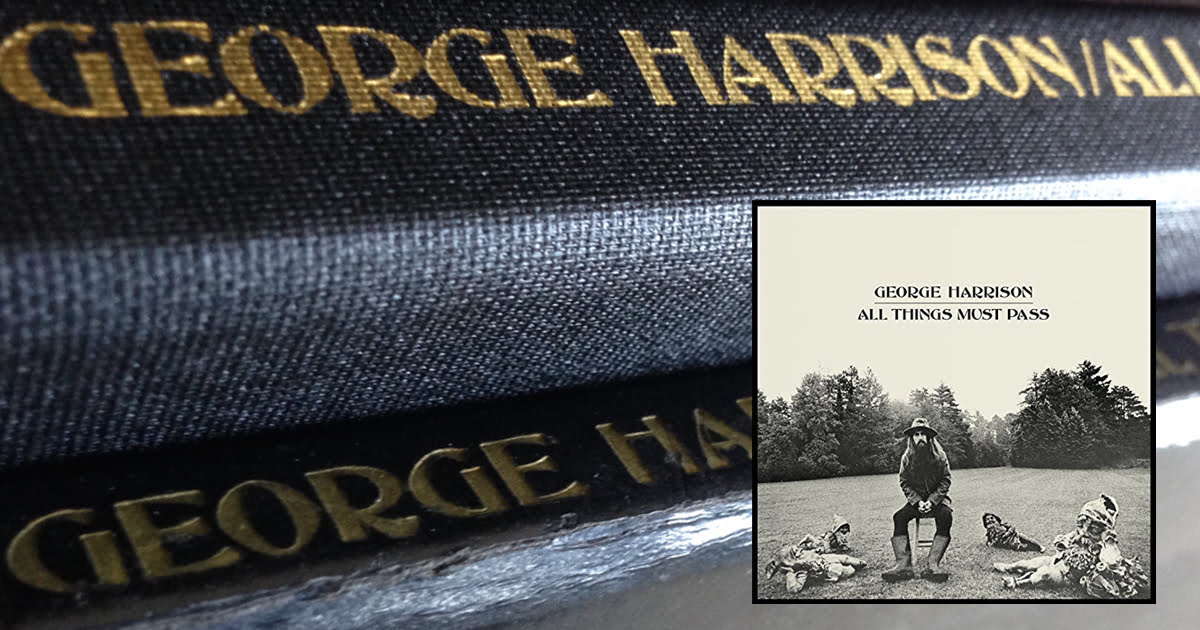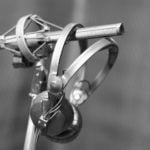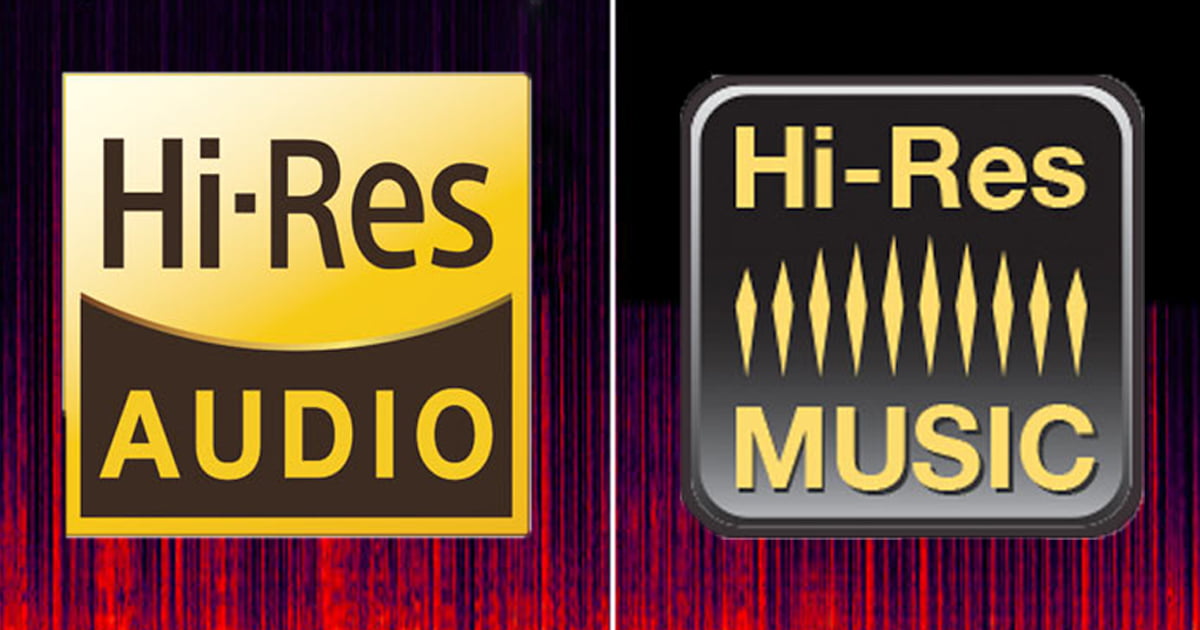It’s the time of year for saving money!
When I first considered reviewing the reissue of George Harrison’s magnum opus, the 1970 classic All Things Must Pass, I had to really think it through as to whether I could honestly and objectively say I “needed” a new copy.
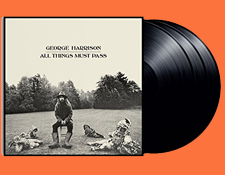 Certain albums which have gone on to become genuine landmark recordings, musical institutions if you will, are often candidates for this sort of thing. And like many of you, I’ve played through numerous copies of this recording, purchased the CD reissues (two different ones!) and hunted high and low seeking a clean original pressing (which eventually came together last year).
Certain albums which have gone on to become genuine landmark recordings, musical institutions if you will, are often candidates for this sort of thing. And like many of you, I’ve played through numerous copies of this recording, purchased the CD reissues (two different ones!) and hunted high and low seeking a clean original pressing (which eventually came together last year).
But that alone should be enough to tell you that buying this reissue is probably a wise move for most people who are fans of George Harrison and this record. Sure, you could look for a used original pressing — which I have done a lot over the past several years, in fact. I can attest that finding a clean original US pressing of All Things Must Pass is not easy, at least at anything less than a pricey collector’s shop. The album was enormously popular and sold in droves, but was also well loved and played over and over.
Here in the USA at least, the construction of the box set was often plagued with wear and (literal) tears — it often got crushed over the years housed tightly in the average teenage record collections. The poster is often missing from the set when you find one, and if you DO find the poster it is often riddled with thumb tack holes, rips and tape marks. So, a clean original complete pressing will easily set you back about $50 and at that point you have to ask yourself: why not buy the reissue which is arguably as good as, if not better than, the original?
Before we get to sound quality ‘n stuff, lets just look at the value proposition within this set, item by item:
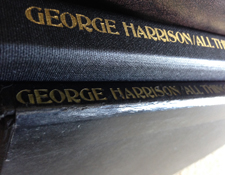 This new box set features arguably a much more robust construct than the original US pressings. It is a bit thicker than my original US pressing and the cardboard used is sturdier. The binding which holds the lid of the cover to the back (a “clamshell,” if you will) is held together with what seems to be a fabric based tape which will give it more flexibility over time and be less likely to crack and peel (as most US pressings I’ve seen have tended to do over time).
This new box set features arguably a much more robust construct than the original US pressings. It is a bit thicker than my original US pressing and the cardboard used is sturdier. The binding which holds the lid of the cover to the back (a “clamshell,” if you will) is held together with what seems to be a fabric based tape which will give it more flexibility over time and be less likely to crack and peel (as most US pressings I’ve seen have tended to do over time).
There is even exacting reproduction of the inner sleeves (in the same lavender, gold and olive hues on the same type of flat matte paper). The cover art printing actually looks better than my original pressing! The labels are period accurate (as far as I can tell) to the UK pressings (which I never actually owned, but still, they look pretty nice!).
Made in Germany, the 180-gram vinyl is dark, silent and perfectly centered. It is the latter factor that made the decision for me that this is going to be my keeper copy because my original US pressing, while fine sounding overall, is a little off center and that is an annoying thing especially on the title track which wavers just enough to be noticeable and distracting — the reissue doesn’t do that at all so I get to hear the music pretty much as it was meant to be heard. Wavering is also an issue on “Hear Me Lord” on my original LP.
The clarity of the new mastering is really pretty wonderful with big detailing on the acoustic guitars on tracks like “Apple Scruffs,” “If Not For You” and the smash hit “My Sweet Lord.” Phil Spector’s production certainly shines here!
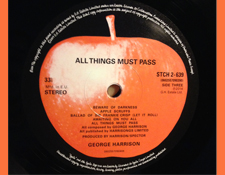 As with the other Harrison reissues I have reviewed thus far, the mastering is a bit quieter here than on the originals. But when you turn up your amp a little more you reveal a nice sense of headroom, detailing and presence to the recordings. I’m guessing here but I suspect the notion behind this might have been to apply less compression to the original master recordings yet not create a mix so hot turntables can’t track it. So, it is a little quieter volume wise, but when you pump up your amp volume it pushes some nice air from your speakers. Dynamic range. Headroom. All that good audiophile type stuff kids like us like.
As with the other Harrison reissues I have reviewed thus far, the mastering is a bit quieter here than on the originals. But when you turn up your amp a little more you reveal a nice sense of headroom, detailing and presence to the recordings. I’m guessing here but I suspect the notion behind this might have been to apply less compression to the original master recordings yet not create a mix so hot turntables can’t track it. So, it is a little quieter volume wise, but when you pump up your amp volume it pushes some nice air from your speakers. Dynamic range. Headroom. All that good audiophile type stuff kids like us like.
So, at the end of the day here, I can comfortably say this is a reissue to get. And I say this as a collector who generally loves original pressings.
But, y’know… If I am going to be honest with myself — and with you, Dear Readers — the single most important original reason… my original impetus, if you will … as to why I got into collecting so called “original” pressings beginning back in the mid-1970s when I was still just in Jr. High School was simply because the quality of reissues had deteriorated a great deal (and continued into the 80s). Album art was compromised. Pressing quality got crummy. Pricey European imports were the desired thing for best sound quality (particularly on UK and European acts).
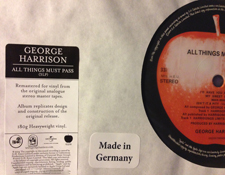 Coming full circle, I have to reason that if some of the labels are in fact now making genuinely high quality reissues which equal or surpass the originals, why not support that? This seems like a no brainer.
Coming full circle, I have to reason that if some of the labels are in fact now making genuinely high quality reissues which equal or surpass the originals, why not support that? This seems like a no brainer.
And with time passing so quickly, don’t you want the best sounding version of an old favorite as possible?
Thus, yes, its time for me to say farewell to my original US pressing and pass it on to some other future collector. For me, this reissue is an excellent, enjoyable and even exciting listen hearing this music with newfound clarity.
All things must pass, indeed…
